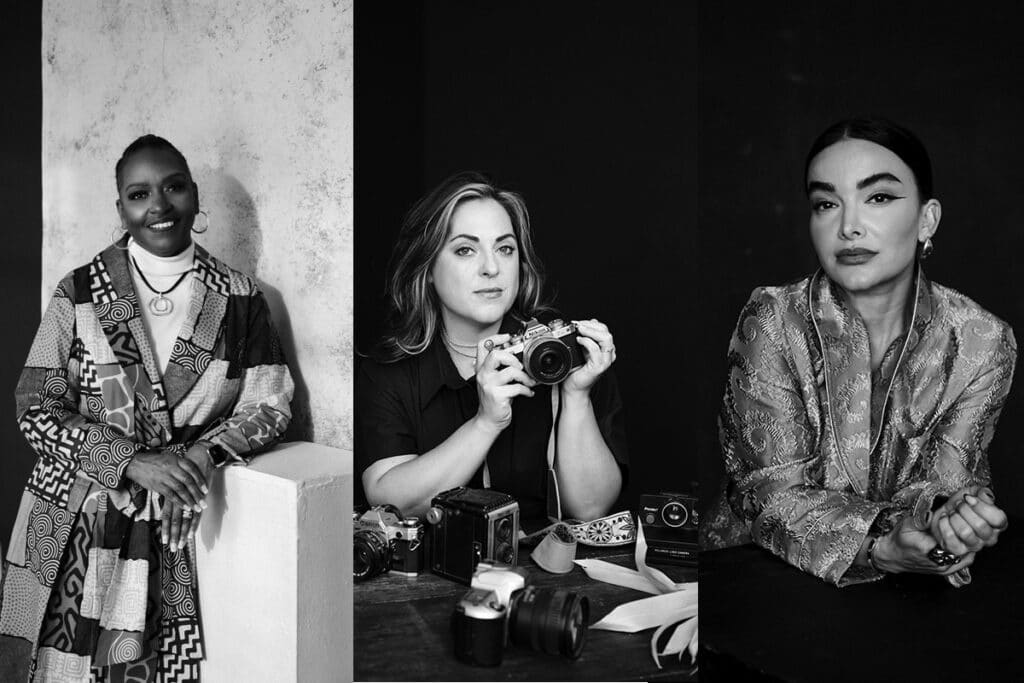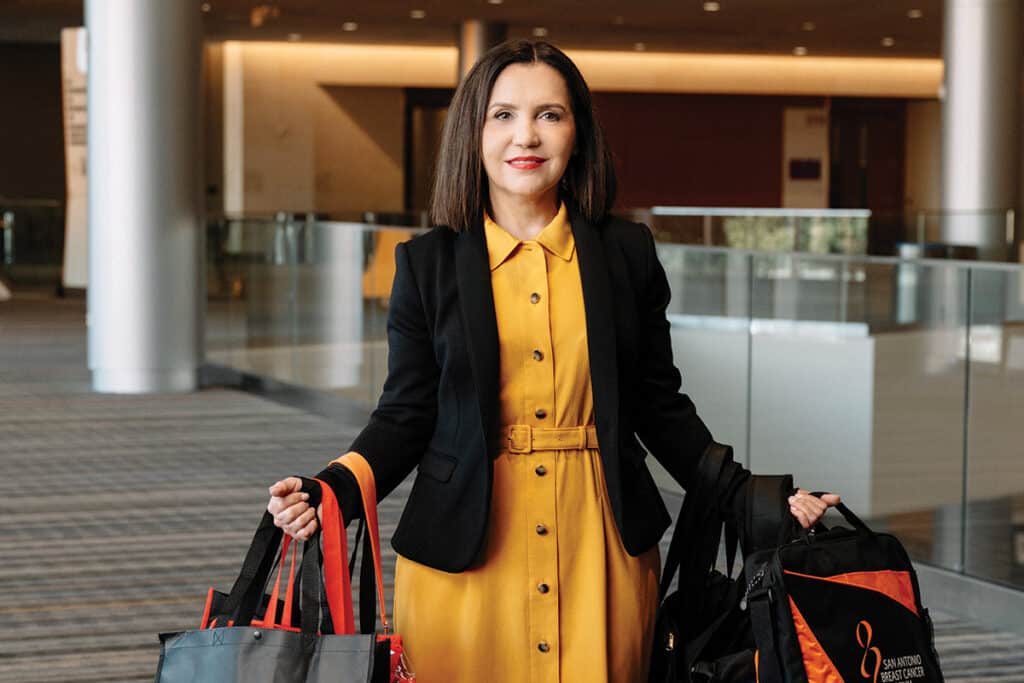There are two common misconceptions regarding woman in the FBI:
1. There aren’t any.
2. If there are one or two, they must be disheveled, non-ladylike, boorish women. (Think Sandra Bullock in Miss Congeniality, pre-makeover.)
It’s time to put those myths to rest once and for all.
The truth of the matter is that not only do women exist in the FBI, they hold positions of power and handle matters of the utmost national security. They go toe to pedicured toe with child predators, terrorists, drug traffickers and other hardened criminals on a daily basis. They are part of a small and elite group of people hand selected for their intelligence, integrity and commitment to the protection of our country. They have made it through the grueling FBI training facility in Quantico, Va., and many of them do all of this while taking care of a husband and children. According to Special Agent in Charge Ralph Diaz, women bring in a perspective that has proven to be a valuable FBI asset. “Women have been a bright light within our organization,” he affirms. “They have a certain sensitivity, and they are able to make observations that men often don’t.
“People think they are stern and stoic with this façade of harshness, but that couldn’t be further from the truth,” he adds. The following three women illustrate Diaz’s point. And though the FBI is still a male-dominated profession (organizationally only approximately 18 percent of special agents are female), these women have found their niches and are proof that beauty and brains do coexist within the FBI.
Special Agent Jane Doe
(Because of her work in areas of highly sensitive national security, we cannot reveal this Special Agent’s identity or division.)
Just because Special Agent Jane Doe has a fondness for shoes and enjoys regular manicures doesn’t mean you can call her “honey.”
One well-known attorney made that mistake during court proceedings and quickly realized the error of his ways. “I told him “I am not your honey,'” says this Puerto Rican beauty. “‘I am an agent of the FBI, and you will address me as such.'” Situations like this are not uncommon for women in the FBI, but they are becoming fewer and farther between as the number of female agents continues to grow. Growing up in Puerto Rico, this daughter of a pastor never gave the FBI a second thought. As a matter of fact, Doe, a talented singer, rarely gave any thought to a career at all. “I had ADHD when it came to jobs,” she laughs. After graduating from the University of Puerto Rico with a degree in biology, Doe went on to get a master’s in genetics with the idea of becoming a genetic counselor. All that changed, however, when she met two FBI agents and, at the encouragement of her boss, applied to the organization. Within approximately 18 months, she found herself in the Academy.
“I felt like a minority because I really never thought I would be there,” she recalls. “For most of the people I know in the program, this was their life’s mission. Of course, now I can’t imagine doing anything else.” Before landing in the world of counter intelligence, the 5 foot 3 inch Doe worked in the criminal division, where she quickly realized that gender doesn’t matter. She has had her eyes doused with pepper spray and has wrestled and boxed with men twice her size. “The FBI holds women to the same standards as men because the criminal doesn’t care who you are,” she explains. Doe, a mother of three girls, is on call 24 hours a day seven days a week. Fortunately her husband, also an agent, understands the demands of the profession. Aside from carrying a weapon at all times, they say theirs is a typical relationship.
“I like my husband to take care of me,” she says with a smile. “I crave that emotional connection at home.” As for her daughters, Doe is encouraging them to be anything they want to be when they grow up. “One wants to be a mommy, one wants to be either a chef or a teacher, and the middle one says she wants to join the FBI,” Doe says with pride. To that middle daughter, as well as any woman interested in joining one of the most prestigious organizations in the country, Doe offers the following advice: “You have to be comfortable with being uncomfortable,” she says. “There will be days when you are not in control, and you have to be a roll-with-the-punches kind of person.” She also recommends being flexible, being able to cope under intense pressure and having a sense of adventure.
If it sounds hard, it is. But as Doe points out, it is also one of the most rewarding professions she can imagine. “I know that what I do matters,” she says with passion. “It matters not only to this community, but to people all over the world.”
Marella Rodriguez
Special Agent, Public Corruption/Civil Rights Squad
When Special Agent Marella Rodriguez tells people she is with the FBI, the most common response is, “You don’t look like an FBI agent.”
Even after 17 years of employment with the organization, Rodriguez is still puzzled by the reaction. “People assume that if you are a woman in the FBI you must have a clerical position,” chuckles the attractive 43-year-old. Quite the contrary. Rodriguez, who is assigned to the Public Corruption/Civil Rights Squad, addresses civil rights matters, which include color of law violations, human trafficking, hate crimes and Freedom of Access to Clinic Entrances (FACE Act) violations. She was actively involved in the high-profile investigation of former San Antonio Police Officer Dean Gutierrez, who was alleged to have sexually assaulted a transgender individual while on duty and in his patrol unit. “The victim was extremely sensitive because of what he suffered in the hands of former Officer Gutierrez and because of the stigma of being transgendered,” she recalls of the case. Born in Mexico and raised there until the age of 14, she is one of nine children — a fact that she says forced her to become independent much faster than her peers. She was the first in her family to learn to drive, the first to leave home and the first to go to college. It was there that she was inspired by an FBI recruiter who came to speak at the University of Texas-Pan American, where Rodriguez was a freshman. She went on to obtain a degree in criminal justice from St. Edwards University in Austin.
But rather than go immediately into the FBI, Rodriguez joined the Texas Department of Public Safety and became a state trooper. She says she found it to be good training for what was to follow. “The Police Academy is not so different from the FBI Academy,” she says. “If anything, it was a little harder.” Although the Police Academy might have prepared her physically and mentally for the challenge of FBI training, there were still some aspects that were surprising. “The gender and racial comments that were made to me back then by some of the older agents shocked me,” she recalls. “But women have historically struggled with gaining respect in various areas of life. I think it gives them the ability to communicate and be more empathetic.” Empathy and strong communication skills are a necessity in the line of work to which Rodriguez has devoted her life. This single mother of two is exposed to terrible injustices every day, and it is her job to provide comfort and hope to those for whom situations seem hopeless.”The best part is when I talk to a victim, connect with them and give them hope that I can help them in their particular situation,” she says. “Civil rights is difficult, but I love the challenge and I want to make a difference.”
Michelle Lee
Supervisory Special Agent, Field Intelligence Group
Eleven years ago, a pretty blond 28-year-old joined the FBI and was at once referred to by a colleague as “Agent Barbie.” But this now 40-year-old seasoned agent knew enough to take it in stride. “You don’t get anywhere by stomping your foot,” says Lee. “You gain respect by your actions.” Lee’s actions have helped her climb the FBI ladder to her current position of supervisory special agent overseeing the Field Intelligence Group, or FIGS. It is a large group comprising FBI intelligence analysts, special agents, language analysts and surveillance specialists. “Each of the 56 field offices has a FIG, which serves as the cornerstone of the offices’ investigative and intelligence operations by managing intelligence within each division,” Lee explains. “They take raw information from local cases and make big-picture sense of it.” Lee oversees a squad of 10 Special Agents. Unlike agents on other squads that investigate cases, Lee’s agents on the FIG focus on the “spaces between the cases.”
“They focus a great deal on the big picture, ensuring that our resources are directed against the most significant threats in the community, both national security and criminal threats,” she says. An aspiring attorney, Lee was in law school at St. Louis University where she met an FBI agent and was fascinated by the stories he told. “He never knew what to expect,” she recalls. “All of my friends who were already practicing law hated it and said it was boring. I liked the idea of variety.” Lee applied and was accepted into the FBI program at the age of 28. “I was very psyched,” she says with enthusiasm. “I was determined that this would be my career. I really enjoyed the physical and intellectual challenges.” Agent Barbie comments aside, Lee says she was pleasantly surprised at how well the men in the Bureau accepted her, and she has found over the past 11 years that being a woman in this mostly male field does have distinct advantages.
“In Field Intelligence we are trying to be more like beat cops, who know the neighbors,” she explains. “The people we engage with must feel comfortable coming to us and be able to relate to us. Female agents tend to be less intimidating to them.” As a mother of two boys under the age of 3, Lee also brings a compassion that spills over into her work — especially when it comes to family matters. “The hardest part of my job is dealing with the children of people that we have to arrest and throw in jail,” she says sadly. “It is so hard to see the environment that many kids are raised in.” Lee counters that difficulty by balancing work with the things she enjoys. Pretty days can find her mowing and gardening, and evenings find her honing her culinary skills. “Cooking Italian cuisine is my favorite,” she says happily. Lee also focuses on what she deems the best part of her job –engaging with the public and meeting new people. This is where the bubbly blond who once had political aspirations finds her greatest professional reward. “Our group is really working hard to take a proactive approach with people in the community,” she explains. “Education and liaison are an important part of what we do.”
Lee says that she, like all of the agents in the FBI, is deeply committed. They believe strongly in the protection of the United States and the people who live in it. It is a daunting task but one that Lee says women shouldn’t shy away from simply because of their gender.
“Many females are intimidated by the idea of joining the FBI, but they shouldn’t be,” Lee asserts. “This is a fantastic career for young women!”
Author: Bonny Osterhage
Photographer: Liz Garza Williams




